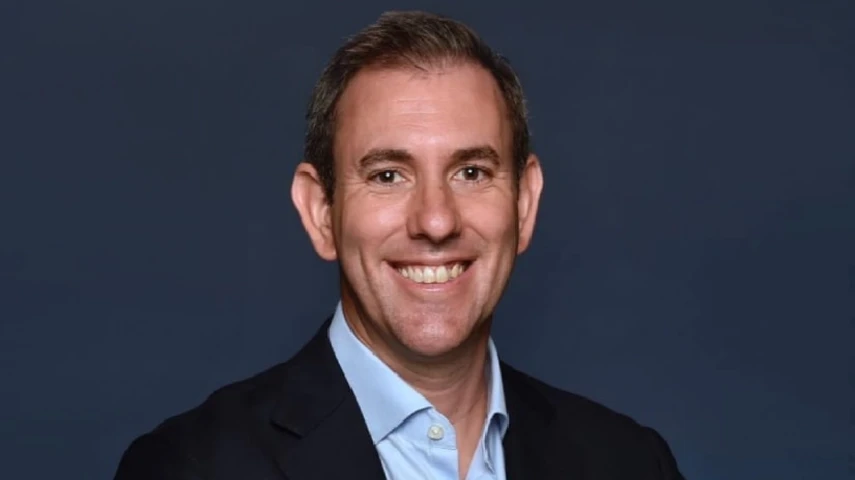Chalmers signals rising deficit as weak Chinese economy hits Australia



Weakness in the Chinese economy is set to weigh heavily on Australia’s budget, with mining exports expected to be downgraded by about $100 billion and company taxes by $8.5 billion over the next four years.
Treasurer Jim Chalmers will deliver the midyear budget update on Wednesday, with forecasts saying the update will show deficits surpassing the previously projected $28.3 billion for this financial year and $42.8 billion in 2025–26.
Speaking to the ABC on Monday, Treasurer Chalmers said one of the biggest pressures on the budget has been the weakness in the Chinese economy, which has implications for Australia’s economy and budget.
“We’ll be downgrading mining exports by about $100 billion, we’ll be downgrading company taxes by about $8.5 billion over the next four years,” the Treasurer said.
“What that shows is that the global economy’s uncertain, and that’s weighing pretty heavily on our budget and on our economy more broadly.”
Other areas placing “substantial pressures on the budget” include “unavoidable spending” in areas like veterans, natural disasters, early childhood, and Medicare.
“What people will see in this budget is we’re still rolling out that cost‑of‑living relief, we’re trying to make room for these big pressures, whether coming at us from around the world, or whether it’s about doing the right thing by our veterans, which we proudly do. You will see all of that tallied up and accounted for on Wednesday,” Treasurer Chalmers said.
He said that, ultimately, people should not expect surpluses in the midyear budget update.
“We’ve been upfront about that on a number of occasions already, we’ve been upfront about some of the reasons why in some of the years there’s a little bit of slippage in the budget but not every year, and that’s the inevitable consequence of some of these pressures,” he said.
Treasurer Chalmers also confirmed that he is preparing for a March budget but would not speculate on whether one will take place, saying that the decision on when to call an election rests with Prime Minister Anthony Albanese.
“From my point of view and Katy Gallagher’s point of view, we’re certainly preparing for a budget in March,” he said.
“That budget will be like the others, it will be defined by responsibility and sustainability, trying to get the budget in much better nick, taking pressure off inflation and making room for our priorities, including doing the right thing by people who’ve served our country in uniform.”
Commenting on the upcoming Mid-Year Economic and Fiscal Outlook, AMP’s Shane Oliver predicted it will likely confirm a “steep slide back into a budget deficit for this financial year and the years ahead”, as the “rivers of gold” from strong commodity prices and the robust jobs market slow, while structural spending pressures take their toll.
Oliver also anticipates the Treasurer will unveil additional government spending, including the previously announced $1.4 billion for childcare, along with further measures under “decisions taken but not yet announced”, ahead of the upcoming election.
Earlier this year, Treasurer Chalmers revealed the underlying cash surplus was $15.8 billion in the 12 months through 30 June this year or 0.6 per cent of the gross domestic product. This followed a surplus of $22.1 billion (0.9 percent of gross domestic product) delivered in 2022–23.
“These are the biggest back‑to‑back surpluses on record,” the Treasurer said in September.
At the time, Oliver said the budget outcome largely reflects “good luck” rather than “smart decision making”, attributing it to a stronger economy and rising commodity prices.
“There’s also this issue that the likelihood is that we will probably go back into deficits this financial year and beyond, as the structural spending pressures start to ramp up. To turn around from that will be a much bigger ask,” Oliver said.
Recommended for you
Advice licensee Centrepoint Alliance has entered an agreement to acquire the comprehensive financial advice book of the super fund’s subsidiary firm.
A coalition of industry groups including the SMSF Association is demanding the government and the opposition “immediately and unequivocally rule out any move to tax unrealised investment gains in any part of the tax system”.
AMP’s new chair has used his inaugural AGM address to call for policy reform on the “decumulation” phase of superannuation and position AMP as a key player in addressing the challenge.
Reserve Bank governor Michele Bullock has quashed hopes of an out-of-schedule rate cut, telling an event in Sydney that it remains too early to determine the trajectory of interest rates as the RBA grapples with growing global economic volatility.












